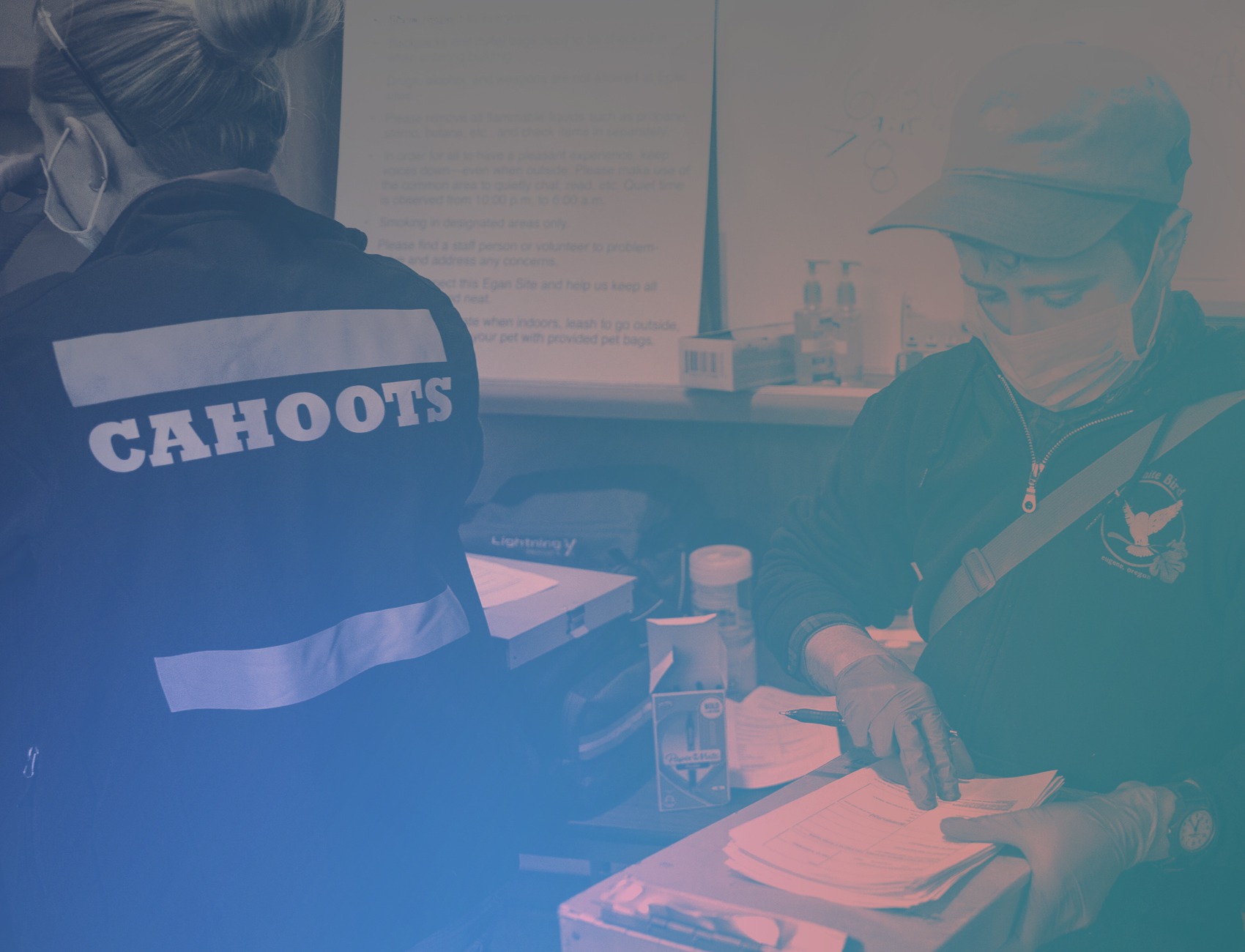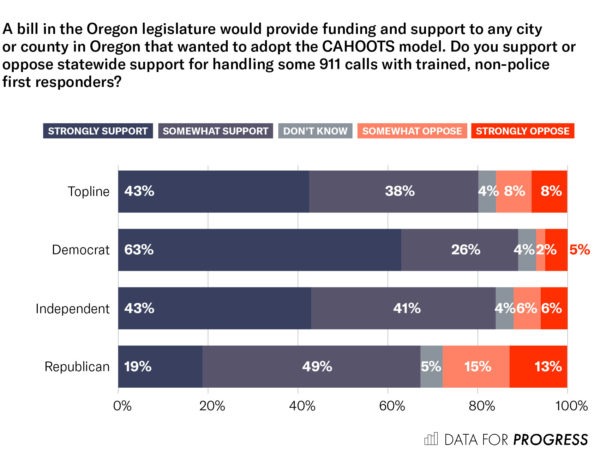Oregon Poll: Replace Police With Trained First Responders
Over 80 percent of Oregon voters support funding programs that deploy non-police first responders to health emergencies.

A growing trend could change law enforcement and social services as we know them, and it started in Eugene, Oregon. An emergency first responder program, Crisis Assistance Helping Out on the Streets, known as CAHOOTS, began more than 30 years ago. The idea is that many emergency calls can be handled by non-law enforcement first responders, as in cases of mental health issues, substance use disorder crises, health and safety check-ins, and the experiences of the unhoused. While armed police often introduce needless violence into these situations, trained responders are better equipped to get people the help that they need.
CAHOOTS has been so successful, the Oregon legislature is on the verge of taking the program state-wide. The relevant bill, which will come through the House Committee on Behavioral Health, had a public hearing on February 24, 2021.
A recent poll by The Appeal and Data for Progress found that a staggering 81 percent of Oregon voters support funding any city or county in Oregon willing to adopt the CAHOOTS model. Just 16 percent of respondents opposed such initiatives—a gap of 65 points. The support is both strong and transpartisan, with 89 percent of Democrats, 84 percent of independents, and 68 percent of Republicans supporting the CAHOOTS model.
And it’s not just Oregon. CAHOOTS has inspired national momentum behind similar life-saving emergency response programs. A pilot program modeled after CAHOOTS launched recently in San Francisco, with others planned in Oakland and Portland, Oregon, and hundreds more requests for program details from communities nationwide.
There’s also federal interest in creating new methods of responding to public health and safety emergencies. In late February, eight senators, including Oregon Senator Ron Wyden, introduced a bill to help states create CAHOOTS-type programs to dispatch mobile crisis response teams when people are experiencing mental-health or substance-use crises, instead of immediately sending law enforcement.
Full Poll Results
Some cities in Oregon have changed the way they handle emergency situations (911 calls), using a program called CAHOOTS. In these cities, many emergency calls are handled by non-police first responders who are experts in addressing mental health and other related issues. These issues include:
- Mental health issues
- Substance use disorder crises
- Check-ins for health and safety
- Someone experiencing a lack of housing

Polling Methodology
From March 5 to March 9, 2021, Data for Progress conducted a survey of 565 likely voters in Oregon using web panel respondents. The sample was weighted to be representative of likely voters by age, gender, education, race, and voting history. The survey was conducted in English. The margin of error is ±4 percentage points.

